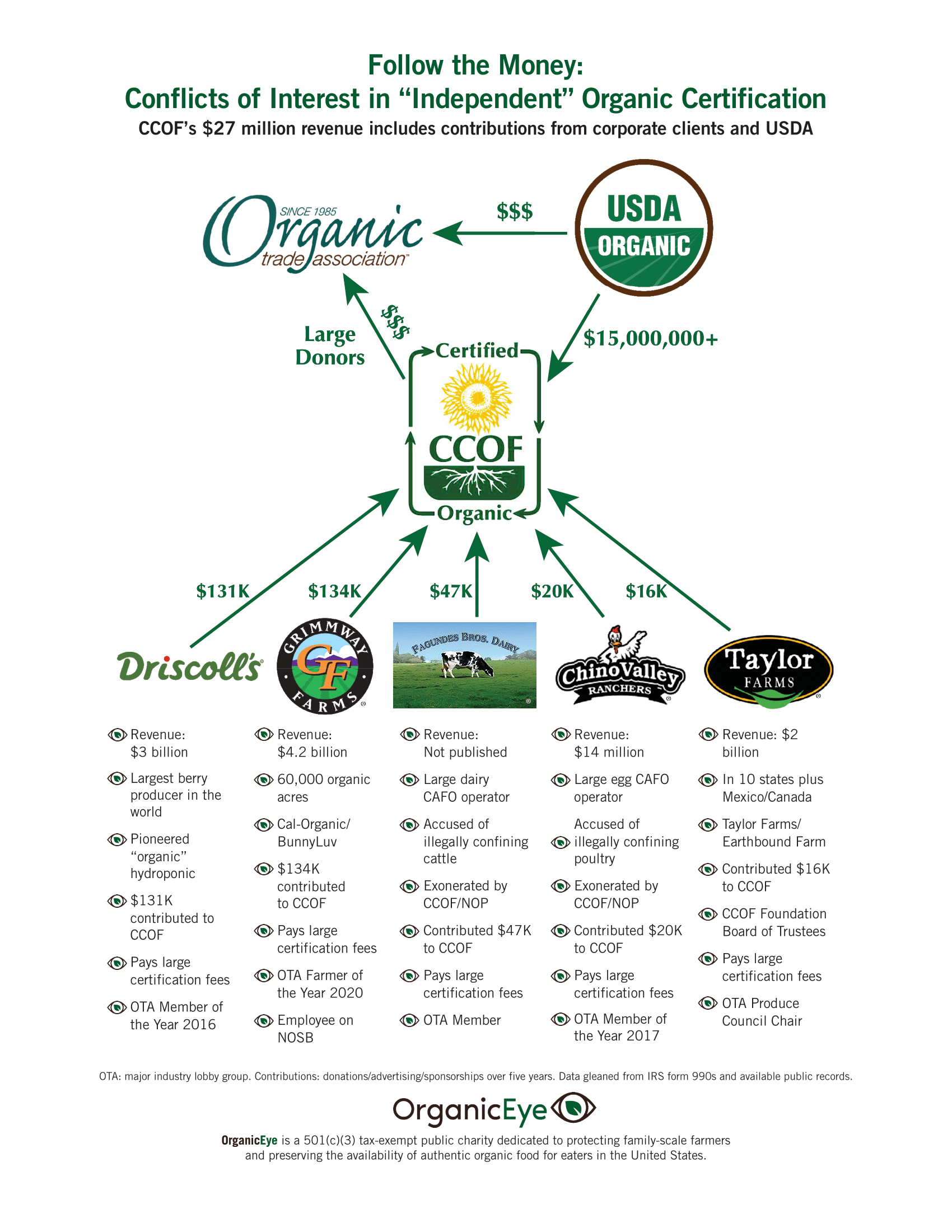Choosing USDA Accredited Certifiers

Farmers and Ethical Business Owners: Find out if your certifier is betraying your values, putting your livelihood at risk, and jeopardizing the brand value of the organic label
Mammoth automated hydroponic operations (bypassing the need for carefully stewarded nutrient-rich organic soil); livestock factories producing “organic” milk, meat, and eggs; grower groups sidestepping the legal requirement for annual farm inspections by certifiers; large-scale fraud both internationally and domestically; non-organic carcinogenic ingredients being approved by the NOSB; and massive amounts of money being transferred between corporate agribusinesses, the USDA, and certifiers. These are not just problems — they are symptoms of a much bigger systemic crisis.
Regulatory Capture
Fundamental elements of the Organic Foods Production Act (OFPA) are not being enforced by the USDA. The lobbyists at the Organic Trade Association (OTA) have taken over the National Organic Standards Board which was designed by Congress as a buffer to prevent undue corporate influence.
Together we can break the lock hold that has corrupted organic certification — by choosing certifiers that share our values.
Please consider carefully when renewing your certification. Together with other farmers and business operators, the dollars you spend can have an impact.
If your certifier doesn’t uphold the organic standards, find a new certifier that does. If switching isn’t possible right away, send a message or letter to the CEO at your current certifier making it clear that they have one year to adopt a moratorium on the certification of hydroponics and CAFOs and to give notice to the existing clients they are certifying that they will need to find a new certifier.
Let’s ostracize the certifiers and their corporate clients that have created their own watered-down version of organics. Our next step is to educate consumers.
Some ethical certifiers have been threatened by the USDA for following the spirit and the letter of the law by not certifying CAFOs or hydroponics. But they have not been deterred. Some have simply explained, “We do not have, or no longer have, the in-house expertise to feel confident certifying large industrial livestock operations or hydroponics (where no USDA standards exist).” Don’t let your certifier use the excuse that the USDA won’t let them act ethically.
Please feel free to use the following resources in your evaluation. And you are more than welcome to contact our organization with questions:
List of high-integrity certifiers and bad actors
Background on the first certifier target: CCOF — with $27 million a year in revenue, they are a multimillion-dollar certifier certifying multibillion-dollar corporate agribusinesses.
December 2023 certification press release
A deep dive: Background on the three corporations that comprise CCOF
Spreadsheet outlining major corporate donors to CCOF
Backgrounder on Grimmway: the country’s largest organic “farm” with 60,000 acres in multiple locations. Conflict of interest as a major donor to CCOF in addition to certification costs.
Backgrounder on Driscoll’s: The world’s largest berry producer — including hydroponic production. Conflict of interest as a major donor to CCOF in addition to certification costs.
Follow the OrganicEye Newsfeed
Give Today
$30
$50
$100
$250
$500
